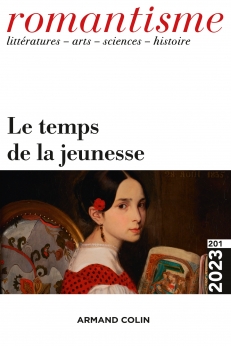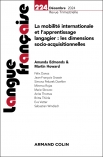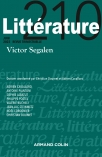
Romantisme N°201 (3/2023)
Pour acheter ce numéro, contactez-nous
Recevez les numéros de l'année en cours et accédez à l'intégralité des articles en ligne.
Les étudiants ont été des acteurs à part entière des révolutions européennes de 1848-1849. Cet article formule l’hypothèse que l’ouverture des possibles en 1848 permet de saisir ce que signifie être étudiant dans l’Europe du milieu du XIXe siècle. En se concentrant sur ceux qui se sont mobilisés en faveur des révolutions, il propose à la fois un tour d’horizon de leurs activités, idées et divisions, et des pistes pour de futures recherches. Après avoir exposé les multiples sens, encore flottants, du terme « étudiant » dans différents pays, il s’attache à montrer l’importance de la structuration du champ universitaire dans les possibilités et formes d’engagement politique en 1848. Il souligne enfin la centralité de l’idéal et de l’objectif de l’État-nation chez les étudiants révolutionnaires qui, peut-être, a conduit à limiter leurs échanges et circulations dans l’espace européen.
Students acted their full share in the European revolutions of 1848-49. This paper tests the idea that the opening up of opportunity in 1848 enables the understanding of what being a student meant in mid-19th century Europe. Focusing on those who rallied to the revolutions, it purports to offer both a survey of their activities, ideas and divisions, and suggestions for further research. After explaining the multiple and still unstable meanings of the word "student" in different countries, the paper focuses on showing the importance of the way the university domains are structured to the possibility and forms of political commitment in 1848. In the final instance it brings to light the centrality of the ideal and goal of the Nation-State among revolutionary students that, perhaps, led them to limit their exchanges and circulations within the European sphere.

